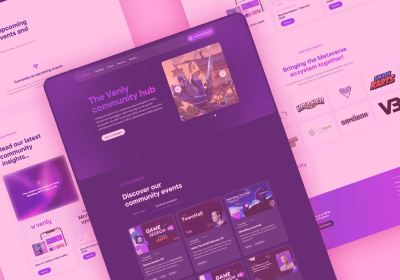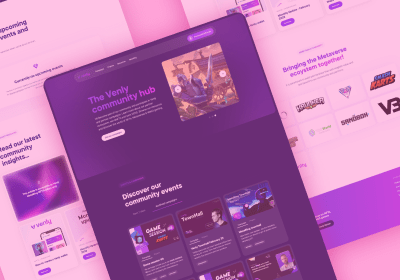
The ABCs of SEO: Need-to-Know Concepts for Performing Better on Google.

There's a lot to be learned about Search Engine Optimization (SEO). It is a complex and extensive field you can easily get lost in. This ABCs of SEO will give you an overview and a brief explanation of the need-to-know concepts in Search Engine Optimization.
Analytics
Google Analytics is a web analytics platform that tracks and reports website traffic. It’s one of the most important tools that developers and marketeers use.
Source: Wikipedia
Backlinks
Backlinks - also called inbound links - are links on other websites leading to yours. Backlinks are very important to your website’s search ranking because they improve your page authority, especially when backlinks are on high ranked pages.
Source: Shoutmeloud
Canonical
A canonical tag is a way of telling search engines that a specific URL represents the master copy of a page. Practically speaking, the canonical tag tells search engines which version of an URL you want to appear in search results.
Source: moz
Duplicate content
When substantive blocks of content match or are very similar to content on another page. Duplicate content is not a violation that will get you a penalty, but it can impact search engine performance, because duplicate content makes it harder for a search engine to decide which version is most relevant.
Source: moz
Experience
User Experience is becoming more important when it comes to SEO. Search engines don’t just like quality information, they want searchers to get information in an accessible way. That’s why, for example, mobile friendliness is now a factor in Google’s algorithm.
Frame
A frame is a part of a web page which displays content independent of the page. Spiders sometimes have trouble indexing them, which could hurt search engine performance.
Source: Wikipedia
The most popular search engine on the internet. With a market share of over 90%, we could be talking about Google Search Optimization instead of SEO.
- Google: 90.88%
- Bing: 3.17%
- Yahoo: 2.46%
Source: Statcounter
Hreflang
If you’re running multiple versions of a certain web page for different languages, you can tell Google about by using Hreflang. This will enable Google Search to send users to the most appropriate version of your page.
Source: Google
Indexing
Search Engine Indexing is the collection, analysis and storage of data to make it easier for search engines to retrieve information. Think of it like a huge spreadsheet of the world wide web, where pages are described in variables, so Google can find information more quickly.
Source: Wikipedia
Keywords
Keywords are words and phrases that searchers enter into search engines. You want the keywords on your page to be relevant to what people are searching for.
Source: Moz
Local
Local SEO is optimizing your website to generate traffic from location based searching. This means that you optimize specifically for search queries with a geographic modifier (e.g. "Indian restaurant in Ghent, Belgium"). This is extremely important for physical stores.
Source: Barkley
Meta description
A meta description is a tag in HTML which summarizes a page’s content. Search engines will show the meta description in search results, especially when the searched-for keyword is within the description.
Source: Yoast
Nofollow & Noindex
Noindex is a tag which instructs robots not to index the page, so it won’t be displayed in the search results.
Nofollow is a tag which instructs search engines not to follow links on the page (or a specific link). This way you won’t pass authority to the pages it links to.
Source: SiteManager
Organic
Organic search results are the unpaid results in a search engine. These results are based on the relevance to the search query. SEO aims at improving the position of a website in the organic search results.
Source: Wikipedia
Page speed
The measurement of how fast the content on your page loads to the browser. It is one of the signals used by Google’s algorithm to rank pages.
Source: Moz
Quality
Quality is more important than SEO when creating content for your website. Google’s quality guidelines clearly state that you should make pages for users, not for search engines.
Keep in mind that if you create content that is unique, valuable, engaging and interesting for people, Google will detect it.
Source: Google Guidelines
Ranking
Ranking is the process search engines use to determine where a web page should appear in the search results. By optimizing for search engines, we aim at getting a higher ranking.
Source: Moz
Spiders
Spiders, also called crawlers, is software used by search engines to collect information about pages and websites. By collecting information they create or expand the index.
Source: Howstuffworks
Title tag
The HTML code that specifies the title of a page. It should be an accurate description of a page’s content, and contain keywords you want to rank for.
Source: Moz
URL
A reference to a web page that specifies its location on a computer network. These can be optimized for both users and search engines.
Source: Search Engine Journal
Video SEO
With video becoming more important on the internet, you should also try to optimize your videos for search engines. A good thumbnail, video transcript, captions and title are all important elements in video SEO.
Source: Wordstream
Website optimization
Website optimization is the process of improving your website to a specific goal. It’s possible to optimize a website for speed, search engines, conversions, mobile devices, etc.
XML
An XML Sitemap provides search engines with an overview of how your website is structured. It gives a search engine insight into the hierarchy of pages, languages, etc. It is a very important document when it comes to search engine optimization.
Yellow pages
Before search engines people found their information in the yellow pages. And companies were optimizing for it as well. Did you know that Apple - the company - chose a name starting with an A because it would appear in the first pages?
Zeitgeist
Google Zeitgeist was a weekly, monthly and yearly report of what people were searching for on Google. In 2007 it was discontinued and replaced by Google Trends.
Optimize your Website
To learn more about optimizing your website for search engines, take a look at our blog resources.
Start building today
Streamline your creative process and keep your team aligned with our collaboration tool.




